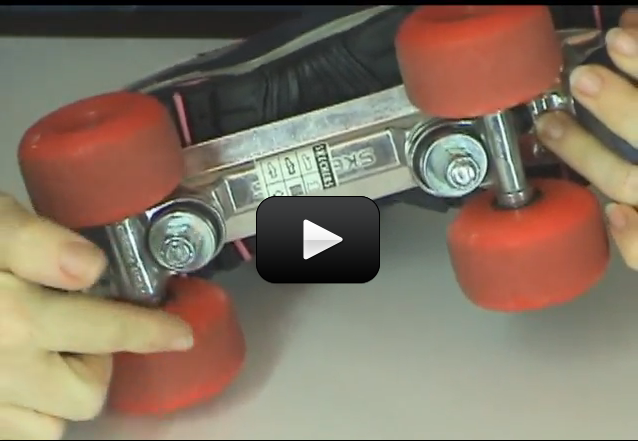This isn't strictly a 'levers' experiment, but it's still a cool demonstration about simple machines, specifically how pulleys are connected with belts.
Take a rubber band and a roller skate (not in-line skates, but the old-fashioned kind with a wheel at each corner.) Lock the wheels on one side together by wrapping the rubber band around one wheel then the other. Turn one wheel and watch the other spin.
Now crisscross the rubber band belt by removing one side of the rubber band from a wheel, giving it a half twist, and replacing it back on the wheel. Now when you turn one wheel, the other should spin the opposite direction. Here's a quick video on what to expect:
Please login or register to read the rest of this content.
Take a rubber band and a roller skate (not in-line skates, but the old-fashioned kind with a wheel at each corner.) Lock the wheels on one side together by wrapping the rubber band around one wheel then the other. Turn one wheel and watch the other spin.
Now crisscross the rubber band belt by removing one side of the rubber band from a wheel, giving it a half twist, and replacing it back on the wheel. Now when you turn one wheel, the other should spin the opposite direction. Here's a quick video on what to expect:
Please login or register to read the rest of this content.


i tried it with a toy car.it worked even when i stretched the rubber band around the rear view mirror that sticks out.(i used a plastic car not a hotwheels car)
🙂
I love it!:)
Thanks for your eagle eye! It looks like you are right! I will correct this document and re-upload it for you.
Let’s look at this together:
velocity = v
angular velocity = w
radius = r
v = rw
The velocity at the point of contact is the same on both gears, so:
v = rawa = rbwb
so the equation is:

Sorry about the abruptness in the wording on the previous comment. It was one of the children who sent it without me knowing it. It does appear that there is a typing error on the worksheet for advanced students in the formula for gear ratio. I believe it should be R = rb/ra = wa/wb. This is a great way for the students to picture angular velocity. Thank you for supercharged science! 🙂
you made a mistake, R = Wa/Wb = rb/ra, not R = ra/rb = Wa/Wb .
I would try a friend’s house! 🙂
Can’t do the experiment because we don’t roller skates or skate boards.
We used a small skate board. Worked well. Thanks.
🙂
How about using a toy car?
Same thing, we have roller blades,not skates.
That is so cool except I do not have roller skates any more I think!